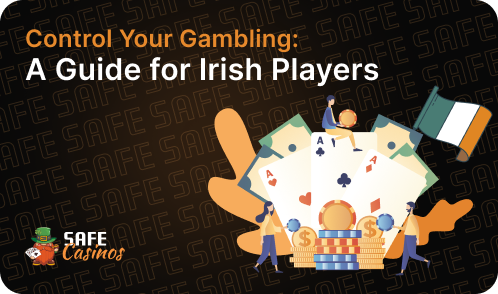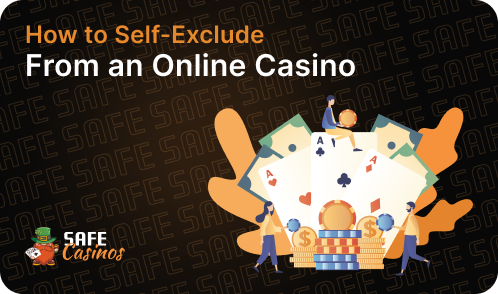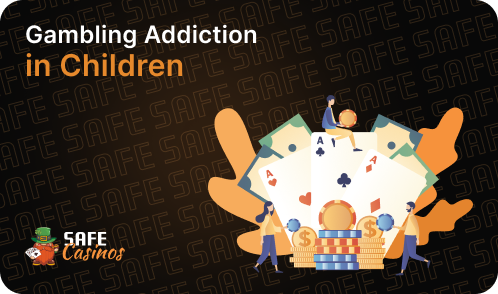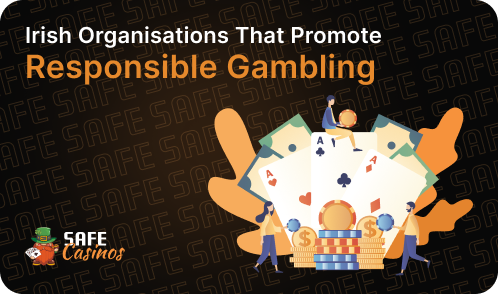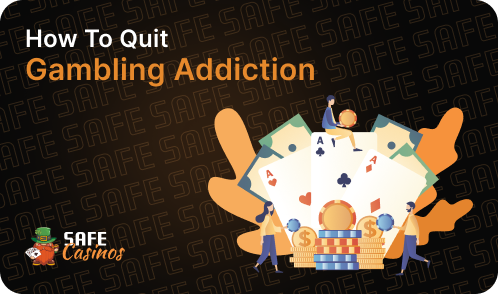Gambling can be an emotional rollercoaster. The thrill of winning big and the fear of losing can lead to adrenaline rushes. Players often struggle to handle these emotions and stay focused on the game. Some manage to do so successfully, while others fail. Those who fail often find themselves in really difficult situations. They lose a significant amount of money, become depressed, and experience deterioration in their relationships with family and friends. We do not want you to be one of them. In this post, you will learn how to stay in control and gamble safely in Ireland. These tips will help you enjoy gambling without it taking over your life.
What is Problem Gambling?
Problem gambling, also called gambling addiction, is when someone can’t stop gambling even though it causes them problems. It’s like an addiction and can lead to mental, financial, and social issues. Studies indicate that 0.5% to 3% of gamblers worldwide experience problem gambling. Responsible gamblers, on the other hand, are aware of their limits and proactively take steps to protect themselves and their loved ones from the potential harm of gambling.
Before talking about solutions to problem gambling, it’s vital to know what makes someone more likely to become addicted to gambling.
Factors behind gambling addiction
Gambling addiction is influenced by various factors. Here are some of the key ones:
Brain chemistry
The release of dopamine in the brain plays a significant role in gambling addiction. Winning or even the anticipation of winning triggers pleasure centres in the brain. The desire to gamble becomes stronger. Over time, individuals may become addicted to this dopamine release.
Genetics
Research suggests that certain genetic markers may increase the vulnerability to addictive behaviours. So, some people have a genetic predisposition to gambling addiction.
Escapism
Some people use gambling as a way to escape from stress or negative emotions. The excitement and thrill of gambling temporarily distract them from life’s problems.
Impulsivity
Impulsive individuals are more prone to problem gambling. They have difficulty controlling their urges. As a result, they may make wrong decisions when it comes to gambling.
Low self-Esteem
The occasional win can provide a temporary sense of confidence. That’s why people with low self-esteem may turn to gambling as a way to boost their self-worth.
Psychological disorders
Depression, anxiety, or substance abuse, can increase the risk of gambling addiction.
Environment
The environment in which an individual grows up and lives can also influence gambling addiction. Exposure to gambling at an early age, peer pressure, and a culture that promotes gambling can contribute to the development of addiction.
Accessibility
The easy access to online and offline gambling sites makes it harder for people who prone to addiction to resist the urge to gamble.
Culture
When gambling is seen as socially acceptable individuals may be more likely to engage in it excessively.
Stress
Financial difficulties and stresses, such as job loss, divorce, or personal crises, cause some people to turn to gambling as a way to cope with those difficulties. Over time, these people become accustomed to using gambling as a way to deal with problems. They start playing every time they face stress.
Early Exposure
Being introduced to gambling at a young age, through family, media or ads, makes it more likely to have gambling issues later in life.
Tips to Control Your Gambling
Here are some valuable tips for responsible gambling, backed by scientific research and observation.
Keep track of the time
Manage your time wisely, and don’t let gambling interfere with your daily responsibilities. Ensure you have time not just for gambling but also for healthy relationships. To achieve this, set schedules for gambling, work, family, and other commitments. Avoid gambling at work, as 15% of Irish gamblers did last year.
Know how the game works
Even if you’ve watched many casino movies, it doesn’t necessarily mean you understand the world of casino games. Before creating an account with an online casino, study Poker, Blackjack, or sports betting. Learn the rules and strategies for the game you wish to play, as this can save you a significant amount of money. Gambling is not solely reliant on luck; it also requires skill.
Practice without money
Before you wager real money, try out demo games that you enjoy. Many free simulators are available online for games like blackjack and slots. Trusted online casinos also offer game demos. Some people even discover that they don’t need to play real slots because demo games provide them with the same level of dopamine.
Set a spending limit
If you gamble with money intended for rent, food, or bills, it’s a warning sign of a gambling problem. Only gamble with spare money that you won’t regret losing. Additionally, set clear loss limits and stick to them. These limits can be on a monthly, weekly, or even daily basis. When you reach these limits, take a break. Furthermore, when you achieve significant winnings, cash them out and reduce your bets or stakes in the game. This will also prevent large losses.
Avoid chasing losses
Thinking you’ll win after losing many times is a common mistake called the gambler’s fallacy. In casino games with random outcomes, losing a lot doesn’t increase your chances of winning later. It’s better to recover losses slowly instead of chasing them all at once.
Avoid gambling when you’re emotional
Emotions matter in gambling. Pay attention to how you feel when you win or lose.
If your mood changes a lot, pause and rethink your approach. Gambling should be fun, not a rollercoaster of emotions. If you’re feeling sad or angry, it’s best to avoid gambling at all. Negative feelings usually harm the ability to make good decisions.
Don’t gamble when drunk
Avoid gambling when you’ve had alcohol or drugs. When you’re drunk, you’re more likely to make risky bets that you wouldn’t make when sober.You may end up spending more money than you can afford to lose.
Take regular breaks
Playing at the casino non-stop can make you lose perspective. If you lose money, leave the casino, take some time to think about what happened, and come back when you feel clear-headed. It’s also a good idea to take breaks between gaming sessions. A short 20-minute break with fresh air and water can help when you’re feeling stressed. For a full refresh and better self-control, take an hour-long break from time to time.
Use the casino’s responsible gambling tools
You do not need to bear the brunt of responsible gambling on your own. Most online betting gambling sites provide tools for combating addictive behaviours. These responsible gambling features are:
- Game time reminder
- Loss limit
- Account closure
- Self-Assessment Test
- Time-out option
- Financial limits
- Auto-play limits
- Self-Exclusion Programs
Diversify your hobbies
If you only find happiness in casino gambling, try to balance it by engaging in other hobbies. Think about things you enjoy or try something new. You don’t have to completely replace gambling, but it’s good not to rely on it as your only way to relax.
Seek specialized help
It’s very important to seek help if you believe gambling is becoming a problem for you or someone you care about. Don’t delay. Many organizations in Ireland are ready to help individuals dealing with gambling addiction. Keep reading this article to discover more about these organizations.
Choose reputable casinos
Finding a secure casino might take some time, but it’s worth it. You don’t have to search alone because our top online casino listings feature legal and trustworthy casinos with responsible gambling tools.
Responsible Gambling Organizations in Ireland
Responsible gambling organizations in Ireland promote safe gambling, help people with gambling problems, and educate the public about responsible gambling. Notable organizations in Ireland include:
- Gamblers Anonymous IE
- GambleAware Ireland
- The National Gambling Helpline
- Addiction Response Crumlin (ARC)
- HSE – Health Service Executive
- Gambling Control Division
- Gamblock
- Gamban
- Gam-Anon
Gambling is just for entertainment, nothing else.
Responsible gambling means finding a balance between entertainment and control. If you follow our tips, you can keep your gambling safe and enjoyable. Know your games, set limits, and seek help if necessary. Gambling can be fun, but it should never harm your finances, relationships, or health. Manage your gambling wisely and have a good time at casinos.
